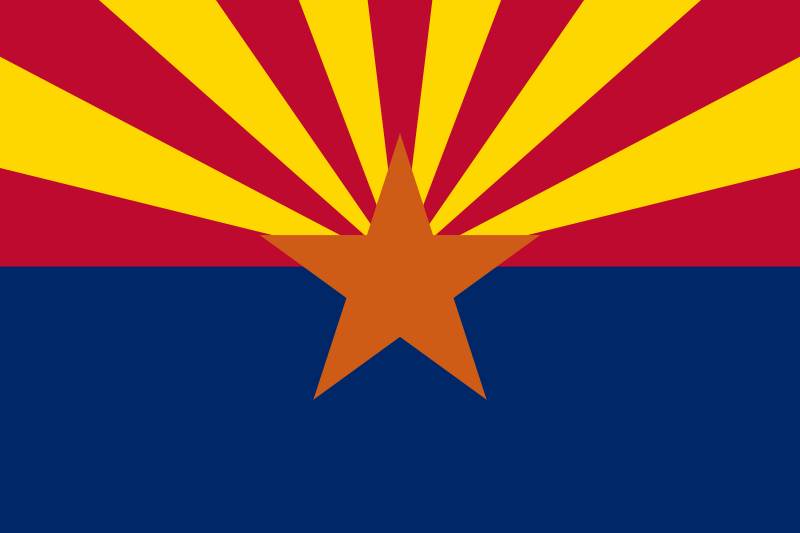On July 7, Arizona Secretary of State Katie Hobbs announced that three ballot initiative campaigns submitted signatures to appear on the ballot this November. If enough signatures are verified, the initiatives will join the eight legislatively referred measures currently certified for the Arizona ballot.
To qualify an initiated state statute in Arizona, campaigns must collect a number of signatures equal to 10 percent of the votes cast in the last gubernatorial election. For the 2022 general election ballot, that means 237,645 valid signatures are required.
The Arizonans for Free and Fair Elections campaign submitted 475,290 signatures for a ballot initiative that would make changes to state election and voting policies. The proposal would provide for automatic and same-day voter registration, make changes to early voting policy, and allow voters to give ballots to another person to deliver by mail, to a polling place, or to a dropbox. It would require election officials to give notice to Native American tribes regarding elections, provide that any person with a disability has a right to vote with assistance, and require that electors of a presidential election are governed by the election law in effect on January 1 of the presidential election year. It would also reduce campaign contribution limits.
"500 boxes filled in 150 days, because people believe that we should have a say what happens in our communities, and that democracy belongs to the people," said Maria Teresa Mabry with Arizonans for Fair Elections.
Ben Petersen, a spokesman for the Republican National Committee, told The Washington Post that Arizona voters will oppose the measure. “If the initiative successfully makes the ballot, voters will reject the Democrats’ radical attempt to take over Arizona elections and change the rules in their favor,” he said.
The Voters Right to Know campaign submitted 393,490 signatures to qualify an initiative to require that anyone who makes independent expenditures of certain amounts must disclose the money's original sources, which would be defined as the people or businesses that earned the money being spent.
“I believe that Arizonans should have the right to know who’s paying for the advertisements that they get bombarded with in every election,’’ said former Attorney General Terry Goddard (D), the co-chair of the Right to Know campaign, “Right now in Arizona there are more ‘dark money’ ads, more anonymous ads being run than in any other state on a percentage of our total advertising. And that’s just wrong.’’
This is Goddard’s third attempt at placing an initiative related to campaign contributions on the ballot. In both 2018 and 2020, he led the campaigns to place an initiative on the ballot. The 2018 initiative failed to make the ballot due to not having enough verified signatures (the campaign fell short of 2,071 signatures). In 2020, Goddard announced that the signature drive was suspended due to the coronavirus pandemic.
Healthcare Rising Arizona submitted 472,296 signatures for an initiative to limit interest rates on debt accrued from healthcare services. “Each one of us is only one major illness away from medical debt,’’ said the Rev. Dr. Bill Lyons of the Southwest Conference of the United Church of Christ, “More than two thirds of all bankruptcies are tied to medical debt from health-care costs. And 18% of Arizonans have medical bills that are past due.’’ The measure, if enacted, would limit the interest rate on medical debt to 3%, or equal to the weekly average one-year constant maturity treasury yield, whichever is less.
If the random sampling indicates that valid signatures equal to between 95 percent and 105 percent of the required number were submitted, a full check of all signatures is required. If the random sampling shows fewer signatures, the petition fails. If the random sampling shows more, the initiative is certified for the ballot.
The Arizonans for Reproductive Freedom campaign announced that it was not filing signatures for its initiative to provide that "Every individual has a fundamental right to reproductive freedom." As a constitutional amendment, the initiative required 356,467 valid signatures. The campaign reported collecting more than 175,000 signatures during its 61-day signature drive.
From 1985 to 2020, 62 initiatives were placed on the ballot – 33 (53%) of them were approved by voters, while 29 (46%) of them were defeated.
Additional reading:
Arizona Campaign Finance Sources Disclosure Initiative (2022)



